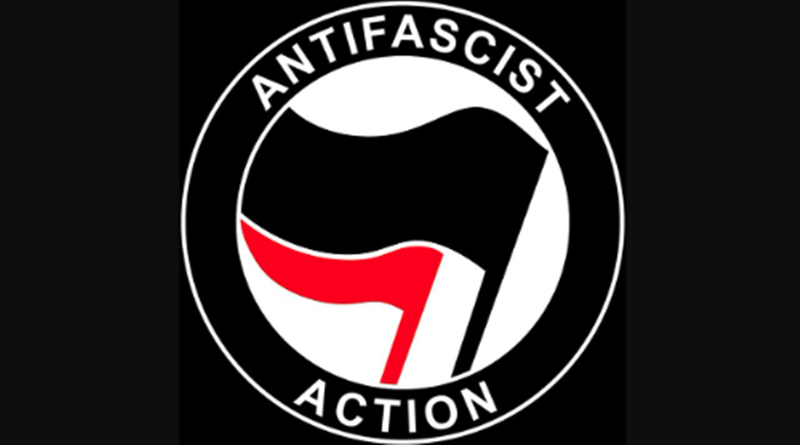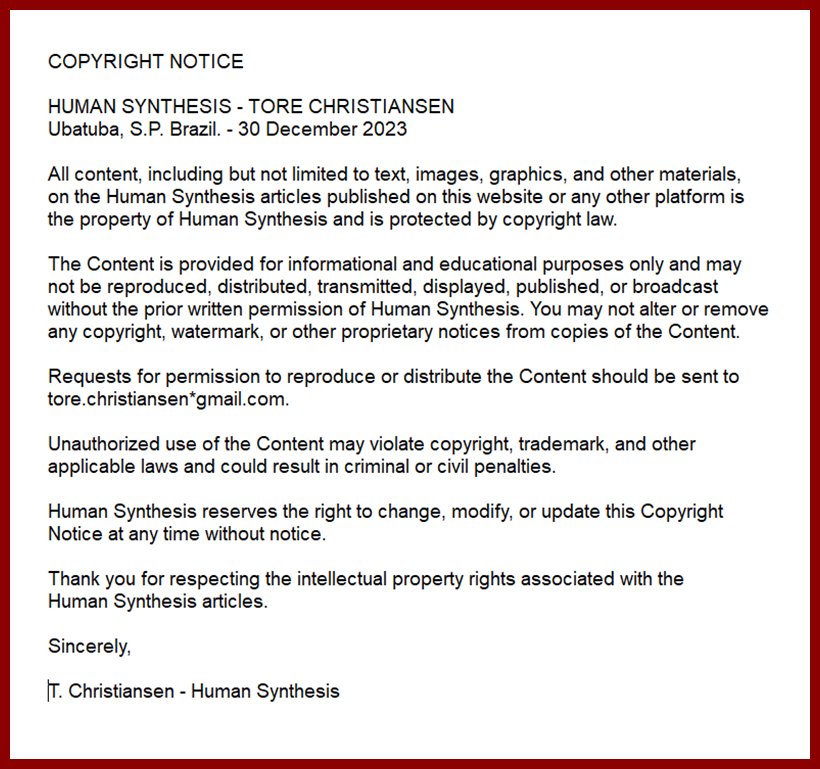Antifa Radicals Elected To The French And European Parliaments


BY Zero Hedge - TYLER DURDEN/Jonathan Turley /JUL 09, 2024
For many years, I have testified and written about Antifa and its growing anti-free speech philosophy. Some Democratic leaders have embraced this violent movement, which continues to gain strength on campuses and its cities across the nation. It is also a global movement.
That is reflected in the alarming election of Antifa candidates to the French National Assembly as well as the European Parliament. That is quite an accomplishment for a movement that President Joe Biden dismissed as “just an idea.”
As discussed in my new book, “The Indispensable Right: Free Speech in an Age of Rage,” I explore the history of Antifa as a movement that began in Germany:
“Antifa originated with European anarchist and Marxist groups from the 1920s, particularly Antifaschistische Aktion, a Communist group from the Weimar Republic before World War II. Its name resulted from the shortening of the German word antifaschistisch. In the United States, the modern movement emerged through the Anti- Racist Action (ARA) groups, which were dominated by anarchists and Marxists. It has an association with the anarchist organization Love and Rage, which was founded by former Trotsky and Marxist followers as well as offshoots like Mexico’s Amor Y Rabia. The oldest U.S. group is likely the Rose City Antifa (RCA) in Portland, Oregon, which would become the center of violent riots during the Trump years. The anarchist roots of the group give it the same organizational profile as such groups in the early twentieth century with uncertain leadership and undefined structures.”
Despite the denial of its existence by figures like Rep. Jerry Nadler (D., N.Y.), I have long written and spoken about the threat of Antifa to free speech on our campuses and in our communities. This includes testimony before Congress on Antifa’s central role in the anti-free speech movement nationally.
As I have previously written, it has long been the “Keyser Söze” of the anti-free speech movement, a loosely aligned group that employs measures to avoid easy detection or association. Yet, FBI Director Chris Wray has repeatedly pushed back on the denials of Antifa’s work or violence. In one hearing, Wray stated “And we have quite a number” — and “Antifa is a real thing. It’s not a fiction.”
We have continued to follow the attacks and arrests of Antifa followers across the country, including attacks on journalists.
Some Democrats have played a dangerous game in supporting or excusing the work of Antifa. Former Democratic National Committee deputy chair Keith Ellison, now the Minnesota attorney general, once said Antifa would “strike fear in the heart” of Trump. This was after Antifa had been involved in numerous acts of violence and its website was banned in Germany.
Ellison’s son, Minneapolis City Council member Jeremiah Ellison, declared his allegiance to Antifa in the heat of the protests this summer. During a prior hearing, Democratic senators refused to clearly denounce Antifa and falsely suggested that the far right was the primary cause of recent violence. Likewise, Joe Biden has dismissed objections to Antifa as just “an idea.”
It is at its base a movement at war with free speech, defining the right itself as a tool of oppression. That purpose is evident in what is called the “bible” of the Antifa movement: Rutgers Professor Mark Bray’s Antifa: The Anti-Fascist Handbook.
Bray emphasizes the struggle of the movement against free speech: “At the heart of the anti-fascist outlook is a rejection of the classical liberal phrase that says, ‘I disapprove of what you say but I will defend to the death your right to say it.’”
Bray admits that “most Americans in Antifa have been anarchists or antiauthoritarian communists… From that standpoint, ‘free speech’ as such is merely a bourgeois fantasy unworthy of consideration.”
The movement continues to take hold among parties on the left. An Antifa leader who is on France’s national security watchlist was elected to the National Assembly as a member of the New Popular Front leftist bloc. Raphaël Arnault will represent Vaucluse in Provence in the French parliament after winning with 54.98 per cent of the vote, according to Le Figaro.
French President Emmanuel Macron and his moderate party worked with the New Popular Front in a power deal to defeat conservatives.
Antifa was part of that front.
In Italy, Ilaria Salis, a school teacher by trade from Milan, Italy, has been elected to the European Parliament despite being arrested in 2023 in Budapest for allegedly taking part in the organized attack by Antifa on attendees of an event commemorating the anniversary of the siege of the Buda castle by the Soviet forces in 1945.
Salis’ far-left green alliance Alleanza Verdi e Sinistra (AVS) succeeded in securing the seat with the backing of far-left Jean-Luc Mélenchon’s La France Insoumise (LFI) party — a member of the New Popular Front alliance.
These two milestones were secured only with the help of mainstream parties and leaders who continue to delude themselves about Antifa and its true agenda.
While convenient allies now to win elections, these same leaders could soon find themselves the next reactionaries denounced by these same radical groups as they gain greater power.
ANTIFA, short for "anti-fascist," is a loosely organized, decentralized political movement of autonomous groups and individuals who oppose fascism and other forms of extreme right-wing ideology.
The primary purpose of ANTIFA is to combat and prevent the spread of fascist, racist, and far-right ideologies and activities through direct action, advocacy, and protest.
Key Purposes and Activities:
- Opposition to Fascism: ANTIFA's core mission is to oppose and resist fascism, which includes actions against white supremacy, neo-Nazism, and other extremist ideologies.
- Direct Action: Members often engage in direct action tactics, such as protests, counter-demonstrations, and sometimes physical confrontation, to disrupt and prevent fascist and far-right activities.
- Education and Awareness: ANTIFA groups work to raise awareness about the dangers of fascism and right-wing extremism through educational campaigns, community events, and dissemination of information.
- Community Defense: Protecting vulnerable communities from hate groups and violent extremists is a significant aspect of ANTIFA's mission. This can include organizing community patrols and providing security at events.
- Solidarity with Marginalized Groups: ANTIFA often aligns itself with other social justice movements, supporting causes related to racial justice, LGBTQ+ rights, immigrant rights, and economic inequality.
Characteristics:
- Decentralized Structure: ANTIFA is not a single organization but a collection of local groups and individuals who operate autonomously.
- Varied Tactics: The tactics employed by ANTIFA can vary widely, ranging from peaceful protests and educational initiatives to more confrontational actions.
- Controversial Methods: The confrontational and sometimes violent methods used by some ANTIFA activists have led to significant debate and controversy. Critics argue these tactics can escalate tensions and provoke violence, while supporters believe they are necessary to effectively combat fascist threats.
Overall, ANTIFA's purpose is rooted in the belief that active resistance is essential to preventing the rise of fascism and protecting marginalized communities from oppression and violence.
FASCISM
Fascism is a far-right, authoritarian political ideology and movement characterized by dictatorial power, forcible suppression of opposition, strong regimentation of society and the economy, and often a policy of belligerent nationalism and racism. Originating in early 20th-century Europe, fascism emerged in response to perceived threats from socialism, communism, liberalism, and democracy.
Key Characteristics of Fascism:
- Authoritarianism: Fascist regimes centralize power in the hands of a single leader or a small elite, often with a cult of personality surrounding the leader. Democratic institutions and processes are either dismantled or severely undermined.
- Nationalism: Fascism promotes a strong sense of national identity and pride, often coupled with xenophobia and a desire for national expansion or dominance. This nationalism is frequently aggressive and militaristic.
- Militarism: Fascist states glorify military strength and often pursue aggressive expansionist policies. The military and paramilitary organizations play a central role in fascist societies.
- Anti-Communism and Anti-Socialism: Fascism vehemently opposes leftist ideologies, particularly communism and socialism, which it views as threats to national unity and the social order.
- Suppression of Dissent: Fascist governments employ censorship, propaganda, and violent repression to silence political opposition and control public opinion. Independent media and political opposition are not tolerated.
- Economic Control: While fascist regimes may allow private property and capitalism, they maintain strict control over the economy to ensure it serves the interests of the state. This often involves collaboration between the government and large businesses, forming a corporatist economic system.
- Racism and Xenophobia: Many fascist movements promote ideologies of racial purity and superiority, leading to discriminatory policies, ethnic cleansing, and genocide. This is exemplified by the Nazi regime's Holocaust.
- Social Darwinism: Fascism often incorporates the belief that certain nations or races are superior and that struggle and conflict are natural and beneficial for societal progress.
Historical Examples:
- Italy under Benito Mussolini (1922-1943): Mussolini's regime was the first to adopt the term "fascism," combining authoritarian governance with nationalist and militarist policies.
- Nazi Germany under Adolf Hitler (1933-1945): The Nazi regime implemented extreme racist and anti-Semitic policies, leading to World War II and the Holocaust.
- Francoist Spain under Francisco Franco (1939-1975): Although different in some respects, Franco's regime shared many characteristics of fascism, including authoritarianism, nationalism, and anti-communism.
Impact and Legacy:
Fascism has had a profound and destructive impact on global history, leading to widespread human rights abuses, war, and genocide. Its legacy serves as a cautionary tale about the dangers of extreme nationalism, authoritarianism, and intolerance. The term "fascism" is often used more broadly today to describe various forms of oppressive, authoritarian, and ultra-nationalist politics.
